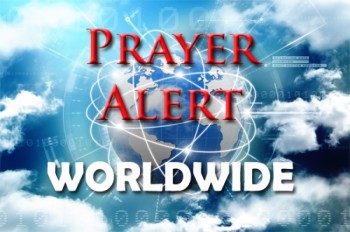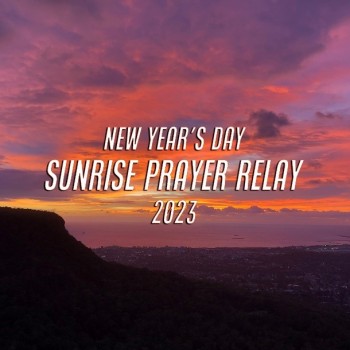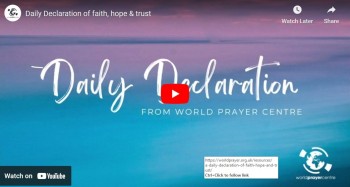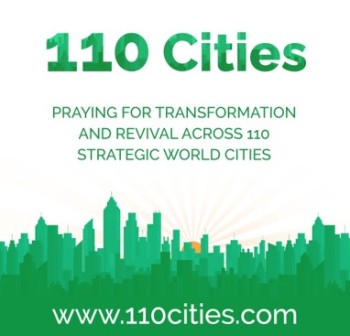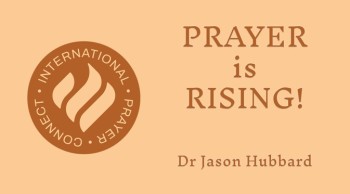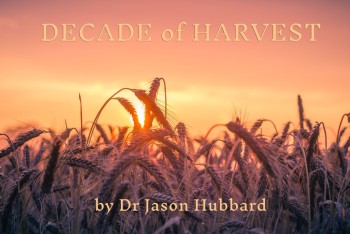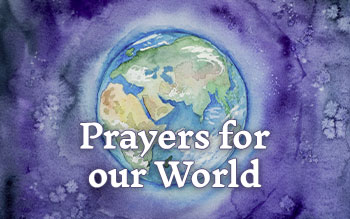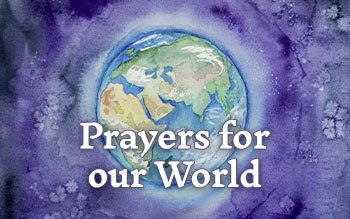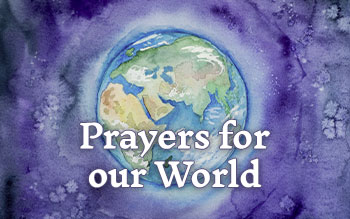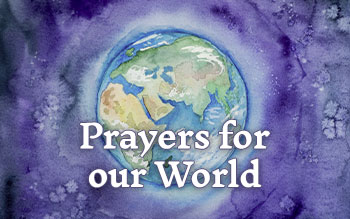
Super User
Lorem ipsum dolor sit amet, consectetur adipisicing elit, sed do eiusmod tempor incididunt ut labore et dolore magna aliqua. Ut enim ad minim veniam, quis nostrud exercitation ullamco laboris nisi ut aliquip ex ea commodo consequat. Duis aute irure dolor in reprehenderit in voluptate velit esse cillum dolore eu fugiat nulla pariatur
At the time of writing, 19th January America is about to hit their debt limit, meaning the government is not allowed to borrow any more money - unless Congress agrees to suspend or change the cap, currently almost $31.4tn (£25.4tn). Since 1960, politicians have moved to raise, extend or revise the definition of the debt limit 78 times - including three just in the last six months. But Republicans recently took control of the House of Representatives and are calling for spending cuts, raising concerns that politicians will delay acting this time - leading America to intentionally default for the first time in its history. Treasury Secretary Janet Yellen has estimated that special measures can buy time for the US until at least June, at which point the government will no longer be able to pay its bills. A true economic catastrophe - unpaid defence contractor payments, Social Security cheques, received by retirees and salaries of government employees, including the military, will all be affected.
Australia Christian prayer leaders invite their brothers and sisters in Christ, prayer groups, prayer networks and churches to join with them all over the world to pray at sunrise on New Year's Day 2023 at a public location such as a hill, lookout or landmark in your city or town. This year our focus is to pray for Revival & Transformation in the nations. Over the last seven years we have had registrations from 70 different countries.
Warwick Marsh, from the Canberra Declaration said, “David said in Psalm 108:2, “I will wake the dawn with my song.” During this time of prayer, we want to focus on giving great praise to God. We also want to pray for revival and transformation in our respective nations and the nations of the world: 2 Chronicles 7:14. Let us all pray for a great harvest of souls for the Lord Jesus Christ.”
Marsh continued, “We also want to encourage you to contend in prayer for souls to be saved in your nation, pray for our unsaved friends and family to know Jesus in 2023. 2 Pet 3:9 is clear that God is not willing that any should perish, but that all should come to repentance. Psalms 113:3 says, “From the rising of the sun to the place where it sets, the name of the Lord is to be praised.” Use the prayer resources on the website and social media and register your location at: https://www.sunriseprayerrelay.com Our prayer is that with your help, this worldwide Prayer and Praise Relay will go viral.”
Pat Steele, a prayer & evangelist leader in Wollongong Australia, said, “We encourage you to pray the Lord's Prayer together aloud as the sun rises and make a declaration that Jesus Christ is Lord of your life, your family, your region, and your nation. At your location we encourage you to include praise and worship, prayers, and scripture readings. We suggest 30 minutes, but you can pray for longer. You could even take communion, shine a torch, or light a candle. What you do for your sunrise celebration is up to you.”
Share photos & videos from your location on social media. Use the hashtag: #sunriseprayerrelay
Website: https://www.sunriseprayerrelay.com
Facebook: www.facebook.com/sunriseprayerrelay
Instagram: www.instagram.com/sunriseprayerrelay
Contact: Warwick Marsh 61 418 225212
Pat Steele by email: This email address is being protected from spambots. You need JavaScript enabled to view it.
Ian Cole, Senior Advisor to IPC and founder of the World Prayer Centre, Birmingham, UK has put together a daily declaration that we can declare every day for God to release faith, hope and trust over our lives.
A DAILY DECLARATION OF FAITH, HOPE AND TRUST
I DECLARE TODAY: YOU ARE OMNIPOTENT, OMNISCIENT, AND OMNIPRESENT TRIUNE GOD, FATHER, SON AND HOLY SPIRIT.
Father,
Your beauty is my worship
Your Face my delight
Your Son Christ Jesus is my Saviour
Your Spirit is my comfort and guide
Your cross Jesus, is my redemption
Your life Jesus is my life
Your body my food
Your blood is my cleansing
Your word Father, is a lamp to my feet
Your Grace is my cover
Your mercy my freedom
Your righteousness my clothing
Your Joy is my strength.
Your protection my fortress
Your peace is my rest
Your presence my security
Your name my healing
Father, I thank you, that in declaring these truths,
I believe for me today
Your love is unfailing, your goodness never ends, your kindness overwhelms and your faithfulness is everlasting. AMEN
A DAILY DECLARATION OF FAITH, HOPE AND TRUST 2022 © World Prayer Centre. The declaration can be copied and distributed freely acknowledging World Prayer Centre www.worldprayer.org.uk
Ian has also written “A Gift of Hope”. The new e-book contains the Trilogy of Hope articles written by Ian Cole and the Daily Declaration.
May the Gift of Hope bring you joy at Christmas! If you would like to purchase the Gift of Hope e-book, you can purchase and download here.
We hope that you can join us in praying this daily declaration compiled by Ian Cole. Let us declare faith, hope, and truth for us and our families. Download a PDF of the declaration
For to us a child is born, to us a son is given, and the government will be on his shoulders. And he will be called Wonderful Counselor, Mighty God, Everlasting Father, Prince of Peace. (Is 9:6)
We are pleased to bring you this Christmas and New Year edition of IPC Connections!
As we reflect on 2022, we have SO much to be thankful for!
We have seen astounding growth in the prayer and missions movements this last year!
This spring, 300 Children Houses of Prayer came together to cover the families and children of China in 100,000 hours of prayer over a period of 31 days!
We launched prayer walking teams who prayed onsite with insight across 90 of the 110 most unreached cities in the world this last year, asking for Jesus to be exalted as King over the peoples of these cities!
18 of the most unreached cities in India were prayer-walked by hundreds of churches in October of 2022 - they are now continuing in 24/7 prayer every month! As teams prayer-walked these cities in partnership with some of the largest house church movements in the world, 570,000 house churches were planted since January 2022, including over 8 million new Jesus followers!
Read more about our vision in our opening article entitled ‘Prayer is Rising’ along with a personal invitation from Dr Jason Hubbard to partner with IPC by sowing in with a donation. Also, do save and read Jason’s inspiring and challenging companion Editorial article entitled ‘Decade of Harvest’.
 Launch of 110 Cities – 2023: 4 Global Days
Launch of 110 Cities – 2023: 4 Global Days
On Dec 5-6th, we gathered with key leaders at the International House of Prayer in Kansas City to make covenant together with 110 million people of prayer around the world, committing to pray on 4 global Days of Prayer in 2023! Watch the event!
It is truly a catalytic moment in the history of the Church, as multitudes of believers are commiting to pray on these 4 Global Days of Prayer this next year.
We invite you and your networks! - to join us as we pray for the exaltation of Jesus Christ in the nations, Psalm 110 and for a burgeoning of Gospel movements in these 110 most unreached cities in the world. Matthew 28:18-20, Matthew 9:37-38. We will pray globally on Pentecost Sunday for the Salvation of all Israel, Isaiah 62:1-7 Romans 9-11. Read more about the 4 Global Prayer Days
 21 Days of Prayer for the Buddhist World - January 2-22 2023
21 Days of Prayer for the Buddhist World - January 2-22 2023
We are calling Christians and churches worldwide - to take 21 days, January 2- 22, to learn about and pray for our world’s Buddhist friends. With this guide we invite you to pray specifically that Jesus Christ will become known to the one billion people across the globe who are at least nominally Buddhist. We are encouraging believers to ask the Father to give his Son these Buddhist nations as his inheritance (Psalm 2:8). Let’s ask the Lord of the Harvest to send forth laborers (Matt 9:38) to key Buddhist cities as messengers of Hope, drenched with the Spirit of God, in the power of God for the mission of God! The Prayer Guide is in 20 languages.
More Info, Resources and Sign up for 110 Cities HERE.
Will you Partner with IPC?! - IPC Connections is brought to 5,000+ networks, groups, churches and personal partners free of charge. As an organization, we are dependent on personal donations, legacies and occasional grant support for our income. This Christmas, end of year season, we would welcome your support no matter how small!
If you would like to sow into the IPC Vision, please click here. Thank you for your support!
Thank you for continuing to partner with us in mobilising and informing united prayer across nations, denominations, movements, and generations for the fulfilment of the Great Commission.
May we express grateful thanks to Andy Page and the IPC Editorial Team who put this email together each month.
‘Hope and a Future!’
What better way for us to close our Christmas IPC Connections email, than sharing a Christmas song video from 'Celebrate Christmas'. It was produced by our friends at Children in Prayer, Singapore! and conveys the seasonal message of 'Hope and a Future!' found in Jesus.
As we joyfully celebrate the birth of our Saviour, we wish you and your families a blessed and peaceful Christmas and New Year.
Jason Hubbard - Director
International Prayer Connect
Please use this link if you would like to sow into IPC’s ministry with a donation.
Disclaimer… The views and opinions expressed in IPC Connections and the articles on our website are those of individuals and our partner organisations. They do not necessarily represent the policies or views of IPC or its individual leaders.
We aim to respect the diversity within the prayer movement and yet embrace our unified calling to mobilise prayer for the nations. (2 Chron 7:14) If you wish to discuss the appropriateness of any articles, please contact us. If for any reason you do not wish to receive IPC emails in future, please click the unsubscribe link below.
Prayer is Rising in the Nations! – Update on IPC’s Vision and invitation to sow in with a donation.
This last year marked the 20yr anniversary of International Prayer Connect (IPC)! We would like to invite you to partner with us in prayer and finances to build a strong foundation for the next 20yrs of global prayer ministry. Prayer is the gift that keeps on giving, as God releases his power in response to the prayers of his people!
Imagine with me - increased prayer rising in the nations where:
 - Families are learning to pray together around the table for gospel movements in the least reached areas of the world.
- Families are learning to pray together around the table for gospel movements in the least reached areas of the world.
- Children are crying out in tears for the children of displaced refugee families to be rescued.
- Women are being rescued from human trafficking and sexual exploitation, experiencing Hope for the first time in their lives.
- Ancient principalities and powers are being restrained, and resisted through united prayer in the darkest places in the world
- 110 million ordinary believers praying 4 times per year for the most unreached cities in the world.
- Revival and Awakening breaking out in places like Myanmar and Mecca.
- 24/7 prayer being established in many different regions of the world
We are seeing some of these results as we pray together as a global family called International Prayer Connect (IPC)!
Would you consider giving a financial gift on behalf of the on-going vision and work of IPC?
 God has been so faithful to shape and form our vision to ‘Exalt Jesus, catalyzing united prayer across nations, denominations, and generations for the fulfillment of the Great Commission.’
God has been so faithful to shape and form our vision to ‘Exalt Jesus, catalyzing united prayer across nations, denominations, and generations for the fulfillment of the Great Commission.’
Our team consists of 30 international leaders from 18 nations. By God’s grace this council gives leadership to 5,000 plus prayer ministries in 180 nations, making this relational prayer network of networks one of the largest in the world.
Your support will help us to continue doing four primary things in 12 different regions of the world
PRAY – CONNECT – INFORM – EQUIP
PRAY – we are helping build canopies of united, strategic and sustainable 24/7 prayer throughout the world. We want to raise up Breakthrough Prayer for ALL people – in ALL places – at ALL times.
Beginning in 2021, we launched our Global Family Digital Prayer Room, with leaders representing 50 nations and 20 languages praying around the throne, around the clock and around the globe
For 2023, we have helped raise up 110 million people committed to pray on 4 global days of Prayer for these 110 mega cities, praying for the Buddhist world, Jan 22nd, the Muslim world on April 17th , the Jewish world May 28th and the Hindu world Oct 31st! We launched an interactive website to envision, equip and train people how to pray on these 4 days of prayer – 110cities.com
We really need your prayer and financial support to make this a reality this next year!
CONNECT – We are connecting global prayer movements with churches, with missions’ movements, and with families around the world.
 This last spring one of our young leaders raised up 100,000hrs of prayer with children ages 4 to 14. These children prayed for the children and families in 31 provinces of China. She gives leadership to 300 childrens’ houses of prayer (CHOP) in many nations.
This last spring one of our young leaders raised up 100,000hrs of prayer with children ages 4 to 14. These children prayed for the children and families in 31 provinces of China. She gives leadership to 300 childrens’ houses of prayer (CHOP) in many nations.
One of these CHOP’s in India (orphans and children of temple prostitutes) cried out in prayer and fasting for 30 days on behalf of the starving orphans of war in Afghanistan. They have also been contending in prayer for the displaced refugee children of Ukraine.
Can you imagine with me how this must move the heart of God to act on behalf of the prayers of these precious children?
This last Spring we helped give leadership to the World Prayer Assembly ‘Connecting’ 500,00 people in 101 nations to pray together for Christ to be exalted in the nations! We are seeing beautiful expressions of John 17 oneness across many nations and generations, as we learn to pray together as family!
 INFORM – Each month we provide specific and measurable prayer points from around the world, together with Praise Reports of answered prayer and increased God activity. We also help to inform churches, and mission’s movements of current prayer initiatives around the world.
INFORM – Each month we provide specific and measurable prayer points from around the world, together with Praise Reports of answered prayer and increased God activity. We also help to inform churches, and mission’s movements of current prayer initiatives around the world.
Because of our unique position, we can mobilize prayer for urgent needs around the world within hours – places and situations like Myanmar, Afghanistan, Ukraine/Russia, and China/Taiwan.
EQUIP – We also provide training resources and tools to help people grow in prayer – prayer being the conversational part of the most important love relationship in our lives.
We help –
- Train churches, pastors and movements in establishing 24/7 prayer
- Equip children and families in prayer
- I just finished a book called the Moravian Miracle – 100yrs of prayer that changed the world, describing the lessons we can learn about prayer from one of the most powerful prayer and mission movements in church history since the book of Acts.
 As these first 20yrs of global prayer ministry come to a close, I am excited about the continuing legacy of partnership, and service that IPC provides to churches and ministries around the world. Most of all we want to help people grow in their personal relationship with Jesus! Nothing can ever enrich our lives—or give more purpose to them—than drawing closer to Him. To be a friend of God is the greatest treasure and the greatest experience we can have in this life.
As these first 20yrs of global prayer ministry come to a close, I am excited about the continuing legacy of partnership, and service that IPC provides to churches and ministries around the world. Most of all we want to help people grow in their personal relationship with Jesus! Nothing can ever enrich our lives—or give more purpose to them—than drawing closer to Him. To be a friend of God is the greatest treasure and the greatest experience we can have in this life.
Would you be willing to make a special donation to IPC to help us fulfill our vision to ‘exalt Jesus through catalyzing united prayer across nations, denominations and generations for the fulfillment of the Great Commission?
Your generous gifts no matter how small, will allow us to continue to see prayer rising in the nations of the earth all for His Glory and our Joy!
Thank you for your loyal faithfulness to stand with us as co-laborers in this purpose. According to King David, those who do the behind-the-scenes support get the same reward as those who are out front. We could not do what we’re doing without you.
 For the Supremacy of Christ in all things,
For the Supremacy of Christ in all things,
Dr. Jason Hubbard – Director
International Prayer Connect
Email: This email address is being protected from spambots. You need JavaScript enabled to view it.
Decade of Harvest – the Convergence of Gospel and Prayer Movements.
This year marks 300 years since the founding of the Moravian community in Herrnhut, Germany. Back in 1722, a group of 300 Bohemian Moravians fleeing persecution, arrived in north-eastern Germany. A wealthy aristocrat, named Count Zinzendorf, offered them refuge on his estate to build a small community named Herrnhut, which means "the watch of the Lord."
On August 13, 1727, during a communion service, they experienced a powerful move of God – an intense sense of God’s love for one another and for lost people beyond their community. What followed was focused, united, and strategic prayer that continued day and night for one hundred years. As men, women, and children prayed around the clock, God called missionaries amongst them. More than 300 people responded, and they helped establish over 5 thousand missionary settlements around the world.
Their love for Jesus compelled them to pray night and day and bring his love to the nations. Their purpose and mandate was to “Win for the Lamb who was slain, the due reward for his suffering,” and their motto was, “Our Lamb has conquered, let us follow Him.”
Today, I believe, we are seeing their vision for prayer being reborn. 2033 marks 2000 years of the Great Commission and the birthday of the Church. As we draw closer to this significant milestone, God is inviting us to a decade of harvest, where the human cooperation in prayer and the empowered proclamation of the gospel has begun to intersect with the divine sovereignty of God.
COVID-19 Draws Together Prayer and Gospel Movements
As COVID-19 spread globally, millions of believers joined together in prayer – from Indonesia to South Africa, India to Brazil, North Africa to the Middle East. They asked God the Father to give his Son, the Lord Jesus, the nations as his inheritance. While they prayed, the Church grew. One of the largest house church networks reported that during this period they grew from 2 million house churches to close to 3 million. This added 20 million new Jesus followers in just a few years! This is just one example of how prayer and gospel movements are converging.
 However, a massive amount of the Great Commission work remains. Even after 2000 years of Church history these spiritual realities continue:
However, a massive amount of the Great Commission work remains. Even after 2000 years of Church history these spiritual realities continue:
- 80 percent of the world’s Muslims still do not know a single Christian.
- 1,708 people groups do not have a Bible in their own language.
- 1.8 million people in the 100 largest remaining unreached people groups, mostly in South Asia, remain only one percent Christian.
And if we continue to do what we have been doing, 500 million Chinese will never hear the good news of Jesus.
Jesus shared this tension with his disciples in Matthew 9:35–38 (ESV), “When he saw the crowds, he had compassion for them, because they were harassed and helpless, like sheep without a shepherd. Then he said to his disciples, “The harvest is plentiful, but the laborers are few; therefore pray earnestly to the Lord of the harvest to send out laborers into his harvest.”
Jesus gives us the solution to the problem of an abundant harvest without adequate workers – pray earnestly! In fact, 19 chapters before Jesus says, “Go Therefore and make disciples of all nations…” he says, “Pray Therefore!” As Dick Eastman, the president of Every Home For Christ, and one of the most respected prayer mobilizers in the world says, “the degree to which prayer is mobilized is the degree to which the world will be evangelized”
In this command, Jesus doesn’t use the common Greek word for prayer. He uses the word deomai, which means to ‘plead desperately.’ And he doesn’t simply tell the disciples to pray for laborers to be sent out to the harvest fields. He uses the word ekballo, which means to ‘drive out, or hurl forth.’ This is the same word he uses when he casts out demons in both Matthew 9:38 and Luke 10:2. So if we review Matthew 9:35-38 once more, we see Jesus commanding us to plead desperately to the Lord of the harvest to forcefully thrust out laborers into his harvest!
Desperate Prayer Moves Nations
Indonesia
Followers of Jesus in Indonesia experienced great persecution in the 1990’s. Then the 2004 tsunami unleased tragic devastation – more than 225,000 people died in Indonesia, Thailand, India, Sri Lanka, and Maldives. In response, the Indonesian Church came together in unifed desperate prayer.
 On May 17, 2012, 120,000 people – including 9500 prayer and mission’s leaders from 86 nations, 20,000 children ages 4-14, and 20,000 young adults ages 18-30 – gathered in Indonesia’s capital city, Jakarta, for the World Prayer Assembly (www.worldprayerassembly.org). The crowd filled the city’s soccer stadium. An additional 385 other stadiums filled with even more Indonesian Christians who joined in praying. They urgently asked God to send a fresh wave of the knowledge of the glory of the Lord to cover the earth as the waters cover the seas (Hab. 2:14).
On May 17, 2012, 120,000 people – including 9500 prayer and mission’s leaders from 86 nations, 20,000 children ages 4-14, and 20,000 young adults ages 18-30 – gathered in Indonesia’s capital city, Jakarta, for the World Prayer Assembly (www.worldprayerassembly.org). The crowd filled the city’s soccer stadium. An additional 385 other stadiums filled with even more Indonesian Christians who joined in praying. They urgently asked God to send a fresh wave of the knowledge of the glory of the Lord to cover the earth as the waters cover the seas (Hab. 2:14).
By 2022, Indonesia had nearly 600 city-wide prayer networks united across denominations and generations. In the first quarter of 2022, they celebrated 10 years since the first World Day of Prayer by coming together in a virtual assembly. Thousands gathered at watch parties across Indonesia, and they were joined by participants from 101 other nations. Under this canopy of connected, strategic, and sustainable prayer, the Church in the world’s largest Muslim nation has grown extraordinarily fast.
 West Africa
West Africa
Since 2019 Last Quarter Evangelism (LQE) has mobilized millions of children and youth in West Africa between four and 14 years old to pray and share their faith. The student-designed, student-led outreach program runs from Oct. 1 – Dec 31 each year. It is done in partnership with All Africa Baptist Fellowship (AABF), All Africa Baptist Youth Fellowship (AABYF) and The Prayer Covenant. During the first two years of this large initiative, more than one million people across more than 30 nations came to Jesus as a result of the witness and testimony of these young people.
Middle East
During Ramadan in 2022, we saw more than 10 thousand people commit to pray 15 minutes each day for 24 unreached Muslims cities throughout the Middle East. Their combined commitment totaled more than 43,000 hours of prayer using specific Bible-based prayer points. We culminated our prayers on the last day of Ramadan. Muslims call this the Night of Power – a night which commemorates when they believe God revealed the Quran to Mohammed through the angel Gabriel.
We called our night of prayer, One Miracle Night. During that night Reaching Unreached Nations Ministries (www.runministries.org), the Jesus Film global leadership team and partners, International Prayer Connect (www.ipcprayer.org/ipc-home), and the hosts, Global Family Prayer Room joined together as a global family in 24/7 prayer both online and on the ground. Our combined prayer totalled more than 50 million hours! We prayed for Christ to be exalted and gospel movements to emerge throughout the Middle East.
And God acted. One family of Jesus followers reported a significant breakthrough as a result. They owned a completed bible translation in the heart language of an unreached people who lived hidden in the mountains of their Middle Eastern country. These believers wanted to share it with that community, but they couldn’t find them.
They noticed that the translated Bible was missing every morning but reappeared when they came home from the work each day. After seeing this pattern several times, they decided to stay up one night to see what was happening.
During the night a dog came, picked up the Bible, and took off running. They decided to follow the dog. It led to the very people they were searching for! They shared Jesus with them, and the village came to Christ!
If God can use a dog to accomplish his work, he can use any of us! As Hudson Taylor said, “When we work, we work; but when we pray, God works.”
Collaborative Intercession Ushers in a Harvest
Go Movement
 The Go Movement (https://www.gomovement.world/) is one example of a collaborative prayer and evangelism effort emerging over the last several years. Its focus is calling every believer to be a witness, with a vision to raise up 100 million intercessors for a one-billion-soul harvest! This last year, thousands of churches were mobilized in prayer and evangelism. The Go Movement reports that millions came faith in Africa this last May, as a direct result of their prayer and evangelism efforts.
The Go Movement (https://www.gomovement.world/) is one example of a collaborative prayer and evangelism effort emerging over the last several years. Its focus is calling every believer to be a witness, with a vision to raise up 100 million intercessors for a one-billion-soul harvest! This last year, thousands of churches were mobilized in prayer and evangelism. The Go Movement reports that millions came faith in Africa this last May, as a direct result of their prayer and evangelism efforts.
If we can verify these numbers are true, they would be comparable to any of the great revivals throughout church history. And this would indicate a God-breathed, Christ- awakening beginning to emerge across the world!

International Prayer Connect
International Prayer Connect, www.ipcprayer.org partnering with ministries like Reaching Unreached Nations (RUN), Finishing the Task (FTT), and the Go Movement brings believers together in prayer. Inspired by the story of the Moravians, they recently launched a new prayer initiative called Pray 110 (www.110cities.com). The focus on these cities came out of research from global house church movements that identified these 110 cities that are ripe for the harvest. Additionally, nearly all remaining unreached people groups on the earth live in or nearby these 110 cities!
These house church leaders also shared that they have teams ready to launch church planting and disciple-making movements in these cities between 2022-2025, and their sense is these movements will rapidly multiply. This is yet another example of prayer and gospel movements coming together.
International Prayer Connect’s (IPC) prayer strategy is to:
- Prayer-walk each of these cities in the next 3yrs, praying onsite with insight
- Raise up 110 million people to pray daily for the peoples living in these 110 unreached mega cities
- Establish on-going 24/7 prayer in each of these cities, building a canopy of night and day prayer one prayer meeting at a time.
Working together with on-the-ground teams, IPC developed 5 prayer points for each city which include the unreached languages of the people groups in each city, Bibles that need to be translated, humanitarian needs of justice, and areas of remaining demonic strongholds. IPC will track the measurable results – number of disciples made, Bibles being translated, and house churches planted in the next 3 years. Anyone can join in praying for these cities by signing up at www.110cities.com.
Global Voice of Prayer
 In 2021, Global Voice of Prayer (www.globalvoiceofprayer.com) partnered together with several other global prayer movements around the world to produce a powerful and inspiring one hour documentary called Come to the Table (https://www.youtube.com/watch?v=Codez81DwO8&t=256s) documenting the prayer and mission’s movements over the last few decades!
In 2021, Global Voice of Prayer (www.globalvoiceofprayer.com) partnered together with several other global prayer movements around the world to produce a powerful and inspiring one hour documentary called Come to the Table (https://www.youtube.com/watch?v=Codez81DwO8&t=256s) documenting the prayer and mission’s movements over the last few decades!
One of the great stories documented is the impact of the Global Day of Prayer, whose founder and leader Graham Power recently went home to be with the Lord. In 2001 Graham initiated a stadium gathering in Cape Town, South Africa that saw 45,000 Christians pray for the needs in their nation. By 2010 this movement grew to become the largest prayer gathering in recorded history, where about 350 million from 220 nations participated in the Global Day of Prayer on Pentecost Sunday.
Prayer is the Key to Revival
Ultimately to have God's blessings, God's work must be done God's way. And Jesus, himself, is the work, the way, and the blessings we need. He must have the supremacy, predominance, pre-eminence, central focus, exaltation, visibility, and raison d'etre! As David Bryant writes, “both individually and corporately, we must be committed to pursuing together more of who God's son is to us, for us, over us, before us, within us, through us and upon us!”
We have a phrase in our house of prayer, “Little keys open Big doors.” Let’s take this little key called prayer, put it in God’s hand and believe God to open up a big door called revival and awaking in the nations of the earth!
 We praise God for the promise that the “effective, fervent prayer of a righteous man avails much” (James 5:16).
We praise God for the promise that the “effective, fervent prayer of a righteous man avails much” (James 5:16).
God releases his power in response to the prayers of his people. God will either give us what we ask for, or give us what we would have asked for if we knew everything He knew. I believe he is so much better than we think he is and doing more than we think he is doing in response to our prayers! May God do immeasurable more than all we ever ask or even imagine all for His Glory for our joy and for the salvation of the multitudes in the nations!
Dr. Jason Hubbard – Director
International Prayer Connect
Email: This email address is being protected from spambots. You need JavaScript enabled to view it.
At the start of December, Reuters estimated the impact of the war in Ukraine as follows:
Deaths
At least 41,295 people
Non-fatal injuries
At least 53,616 people
Missing
At least 15,000 people
Displaced
Approximately 14M people
Buildings destroyed
At least 140,000
Property damage
Approximately US$350B
Nearly 10 months after his invasion of Ukraine began, Russian President Vladimir Putin on Wednesday acknowledged that the conflict is “going to take a while,” as he also warned of the “increasing” threat of nuclear war.
Speaking at a meeting of Russia’s Human Rights Council at the Kremlin, Putin said Moscow will fight by “all available means at our disposal,” in what he insists on calling a “special military operation,” but also said he saw no immediate need to mobilize more troops.
The fighting in Ukraine has been slowing down and this will likely continue in the coming winter months, US intelligence agencies believe. However, there has been no evidence of fading resistance on the part of Ukrainian forces, US director of intelligence Avril Haines said. She said both sides would try to "refit, resupply and reconstitute" for any counter-offensive in the spring.
NATO’s secretary general, Jens Stoltenberg, has said Russia is attempting to “freeze” the fighting in Ukraine over the winter to prepare its forces for a renewed assault early next year. Stoltenberg urged NATO allies to continue sending weapons to Kyiv over the winter, adding that the conditions for a peaceful settlement to the war are “not there now”. It follows Russian attacks on Ukraine's critical energy infrastructure. The war in Ukraine is now in its tenth month but Russia has lost more than half the land it seized.
Pray: For the safety and welfare of civilians in conflict zones in Ukraine (Psalm 121:7)
For those who have lost family members in the war, are grieving, widowed, or orphaned.
For the peace and justice of God to flow through the land of Ukraine (Deuteronomy 20:1-4)
In Port-au-Prince you cannot see the boundaries, but you must know where they are. Your life may depend on it. Competing gangs are carving up the Haitian capital, kidnapping, raping, and killing at will. They demarcate their territory in blood. Cross from one gang's turf to another, and you may not make it back.
Those who live here carry a mental map, dividing this teeming city into green, yellow, and red zones. Green means gang free, yellow can be safe today and deadly tomorrow, and red is a no-go area. The green area is shrinking as heavily armed gangs tighten their grip.
Armed groups control - and terrorise - at least 60% of the capital and its surroundings, according to Haitian human rights groups. They encircle the city, controlling roads in and out. And the UN says the gangs killed almost 1,000 people here between January and June of this year.
Kidnapping is a growth industry. There were 1,107 reported cases between January and October of this year, according to the UN. For some gangs it's a major income stream. Ransoms can run from $200 (£164) to $1m (£819,740). Most victims come back alive - if the ransom is paid - but they are made to suffer.
U.N. Secretary-General Antonio Guterres proposed a "rapid action force" to confront the gangs, and the United States and Mexico proposed a security mission that would be led by an unnamed "partner country".
But most countries remain sceptical of a role in any military intervention in Haiti, noting that previous efforts such as a 2004-2017 U.N.-backed peacekeeping force did not yield sustained improvements in security.
Canada and the United States have instead imposed sanctions on Haitian politicians and business leaders accused of financing the gangs for economic and political benefit.
Pray: For God’s light to shine in the darkest corners of Haiti, for His love to overwhelm the ever-growing evil of gang warfare (John 1:4-5.)
For the safety of Haitians from kidnapping, murder, and the impact of gang warfare.
For the work of the United Nations and other international organisations working to confront violence. (Psalm 107:20)
On 14th December, Iran has been removed from the United Nations women’s body, a move pushed by the United States as the Iranian government continues to repress protests across the country.
“UN Member States just voted to remove Iran from the Commission on the Status of Women,” the US ambassador to the UN Linda Thomas-Greenfield said on Twitter following the vote. “Iranian women and activists called on us to do this – and today, we got it done.”
Iran has rejected a newly-appointed independent U.N. investigation into the country's repression of anti-government protests, the foreign ministry said, as demonstrations showed no sign of abating.
"Iran will have no cooperation with the political committee formed by the U.N. Rights Council," ministry spokesman Nasser Kanaani said.
The U.N. Rights Council voted to appoint a probe into Iran's deadly crackdown on protests. Volker Turk, the U.N. rights commissioner, had earlier demanded that Iran end its "disproportionate" use of force in quashing protests that erupted after the death in custody of 22-year-old Kurdish woman Mahsa Amini on Sept. 16.
Activist news agency HRANA said 450 protesters had been killed in more than two months of nationwide unrest as of Nov. 26, including 63 minors. It said 60 members of the security forces had been killed, and 18,173 protesters detained.
The unrest has posed one of the boldest challenges to Iran's clerical ruling elite since it came to power in the 1979 Islamic revolution, though authorities have crushed previous rounds of major protests. Iran has blamed foreign foes and their agents for the unrest.
More: Reuters
Pray: Asrin’s Prayer for Iran (Prayer 24-7)
Heavenly Father,
With a breaking heart, I lift up my country to you.
Comfort
As we watch the pain, sorrow and violence spreading across Iran right now, we thank you that you are the God of all comfort.
We grieve for those hurting. We lift up especially the family of Zhina Mahsa Amini, and the loved ones of those who have died or been injured in the protests. Please, show them your comfort. You alone can ease this pain.
Many protestors have been arrested and their families do not know where they are. Many people are afraid to leave their homes amid the unrest. Many people are so hurt and angry they are consumed by it. Please, reveal your comfort to them. Comfort my country, Lord.
Hope
Now more than ever, Iran needs your hope.
So many of our people don’t know you. They are hurt, they are angry and despairing. They desperately need hope. They feel unseen and unheard. But Father, you see all. You hear the cry of every heart.
Now is the most important time for our people to hear and receive your Good News. Lord, open their hearts. Bring them near to you. Let them enter into your living hope.
Courage
Lord, you have many faithful people in Iran. Strengthen your church to be courageous as they go out to share your love with the hurting. Be with them by your Spirit and protect them as they go on prayer walks, as they hold out your words of hope, as they minister to people practically.
Awaken your church in Iran to be fully present with those who are buried deep in pain and anger. And awaken your global Church to know how to pray and act at this time.
Light
Father, we ask that no more of Iran’s daughters or sons would be killed. Restrain the violence, we pray. May many lay down their weapons and refuse to use violence.
We pray the fear of God would enter the hearts of Iran’s leaders: that they would repent and turn to you. Lord, free our beautiful nation from oppression.
Lord, dispel the darkness, the anguish and the suffering from our land. Let your light break through!
Maranatha. Come, Lord Jesus.
Amen.
Hospitals in China appear to be filling up amid concerns about a fresh Covid-19 wave hitting the country, the World Health Organization (WHO) says. Dr Michael Ryan says intensive care units (ICU) are busy despite officials saying numbers are "relatively low". In recent days hospitals in Beijing and other cities have been filling up as the latest Covid surge hits China.
Since 2020, China has imposed strict health restrictions as part of its zero Covid policy.
But, the government ended most of those measures two weeks ago after landmark protests against the strict controls.
In a significant easing of Covid controls, the Chinese government said that people will no longer need to show negative virus tests or health codes in order to travel between different parts of the country. Chinese authorities also said that unless an area is designated as high-risk, work and local production cannot be stopped.
In an example of how strict Covid controls had become in mainland China, the capital city of Beijing this year increasingly required people to scan a health code with a smartphone app in order to enter public venues. The health code then had to show a negative virus test result from within the last two or three days. If the health code decided the user had come into contact with an infection or Covid risk area, the app would show a pop-up window, making it impossible for the person to enter public areas, or board a train or airplane until the pop-up was resolved. The capital city relaxed its health code scanning requirements on Tuesday.
Despite a national easing in Covid measures in mid-November, a surge of infections and the ensuing local implementation of China’s stringent zero-Covid policy added to people’s frustration with the controls. Students and groups of people held public protests during the last weekend of November. The unrest was triggered by a fire in a high-rise block in the western Xinjiang region that killed 10 people last week. Many Chinese believe long-running Covid restrictions in the city contributed to the deaths, although the authorities deny this.
It led to days of widespread protests across various cities, which have since ebbed amid a heavy police presence. Thousands of Chinese in more than 20 cities took to the streets beginning on November 25, frustrated by lengthy COVID-19 lockdowns, widespread testing and other restrictions placed on people's movements. It was one of the largest acts of public dissent in China in decades.
While most of the protesters focused their anger on the government's COVID-19 policies, some also demanded the resignation of President Xi Jinping. The government considers such speech subversive. Though government officials did not publicly mention the protesters, they suggested easing restrictions within days of the first protests to head off any more demonstrations. Videos of protesters across the country captured demonstrators raising blank sheets of paper, a quiet show of dissent and a tactic used to evade censorship and prosecution.
Pray: From Premier Christian News
Almighty God,
May you bless all who are persecuted and under threat.
We pray for an end to the unrest in China, Iran and other parts of the world.
May those who do not know you, come to follow you and your example of love and hope.
In Jesus' name, Amen.
